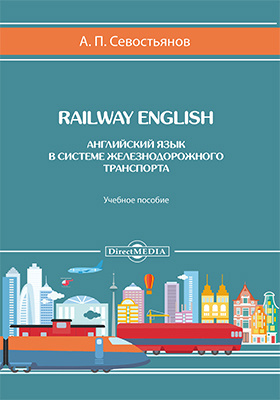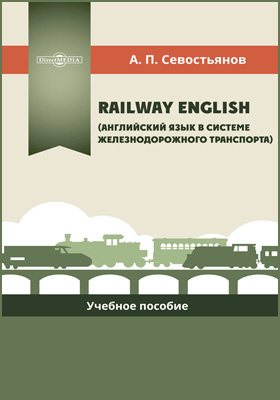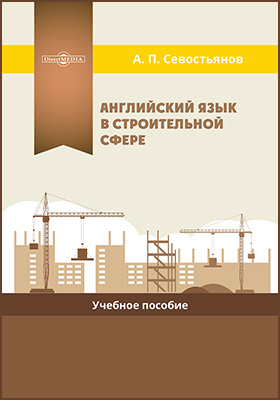Английский язык в строительной сфере
Здесь можно купить книгу "Английский язык в строительной сфере " в печатном или электронном виде. Также, Вы можете прочесть аннотацию, цитаты и содержание, ознакомиться и оставить отзывы (комментарии) об этой книге.
Место издания: Москва
ISBN: 978-5-4499-3975-3
Страниц: 536
Артикул: 105884
Краткая аннотация книги "Английский язык в строительной сфере"
Учебное пособие подготовлено в соответствии с Федеральным государственным образовательным стандартом ВПО и предназначается для студентов языковых и экономических специальностей языковых и неязыковых вузов. Цель пособия — обучение навыкам устной и письменной английской речи в строительной сфере. Учебное пособие составлено по целевому и тематическому принципу и включает аутентичные профессионально-ориентированные тексты, позволяющие ознакомить слушателей с особенностями профессионального общения в рамках профессиональных тем. Справочная часть пособия содержит терминологические глоссарии, перечни сокращений, принятых в деловой корреспонденции в строительной сфере, образцы действующих нормативных документов и фразеологических словарей, помогающих ориентироваться в вопросах составления договоров, ведения деловой переписки и устного общения в строительной отрасли. Все материалы, используемые в данном пособии, имеют прикладную направленность и апробированы на практике. Пособие может быть полезно преподавателям и всем лицам, работающим в международном строительном бизнесе, всем тем, кто самостоятельно изучает современный английский язык делового и профессионального общения в рамках его использования в типичных речевых ситуациях.
Содержание книги "Английский язык в строительной сфере "
Предисловие (Preface)
Chapter I. Construction Practice
Unit I. Construction
Unit II. Construction Project
Unit III. Construction Materials
Unit IV. Construction Equipment
Unit V. Construction Professions
Unit VI. Health, Safety and Environment (HSE)
Chapter II. Building Concept
Unit VII. Buildings
Unit VIII. Foundation Building Procedures
Unit IX. Roof and Ceiling
Unit X. Walls
Unit XI. Technological Ports
Unit XII. Floors
Unit XIII. Elecrtricity
Unit XIV. Plumbing
Unit XV. Climate
Unit XVI. Building a House (From Start to Finish)
Chapter III. Keys to Exercises
Chapter IV. Reference Sources
Appendix I. Construction
Appendix II. Construction Projects
Appendix III. Construction Materials
Appendix IV. Construction Equipment
Appendix V. Construction Professions
Appendix VI. Health, Safety and Environment (HSE)
Appendix VII. Buildings
Appendix VIII. Foundation Building Procedures
Appendix IX. Roof and Ceiling
Appendix X. Walls
Appendix XI. Technological Ports
Appendix XII. Floors
Appendix XIII. Electricity
Appendix XIV. Plumbing
Appendix XV. Climate
Appendix XVI. From Start to Finish
Appendix XVII. Glossary with Pictures. Around the House
Список использованных источников и литературы
Список современных информационных технологий и мультимедийных продуктов
Все отзывы о книге Английский язык в строительной сфере
Отрывок из книги Английский язык в строительной сфере
which may contain universal joints to allow it to deviate somewhat from a straight line. TYPES OF CONSTRUCTION EQUIPMENT A crane is a lifting machine, generally equipped with a winder (also called a wire rope drum), wire ropes or chains and sheaves that can be used both to lift and lower materials and to move them horizontally. It uses one or more simple machines to create mechanical advantage and thus move loads beyond the normal capability of a human. Cranes are commonly employed in the transport industry for the loading and unloading of freight, in the construction industry for the movement of materials and in the manufacturing industry for the assembling of heavy equipment. Cranes were used domestically since ancient times. The first construction cranes were probably invented by the An-cient Greeks and were powered by men or beasts of burden, such as donkeys. These cranes were used for the construction of tall buildings. Larger cranes were later developed, employ-ing the use of human treadwheels, permitting the lifting of heavier weights. In the High Middle Ages, harbour cranes were introduced to load and unload ships and assist with their construction — some were built into stone towers for extra strength and stability. The earliest cranes were constructed from wood, but cast iron and steel took over with the coming of the Industrial Revolution. Tower Cranes Tower crane is a modern form of balance crane. Fixed to the ground (and sometimes attached to the sides of structures as well), tower cranes often give the best combination of height and lifting capacity and are used in the construction of tall buildings. The jib (colloquially, the 'boom') and counter-jib are mounted to the turntable, where the slewing bearing and 81
Севостьянов А. П. другие книги автора





























С книгой "Английский язык в строительной сфере" читают







































Внимание!
При обнаружении неточностей или ошибок в описании книги "Английский язык в строительной сфере (автор Александр Севостьянов)", просим Вас отправить сообщение на почту help@directmedia.ru. Благодарим!
и мы свяжемся с вами в течение 15 минут
за оставленную заявку








